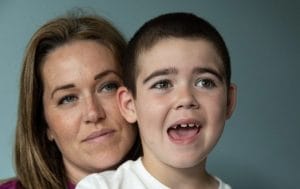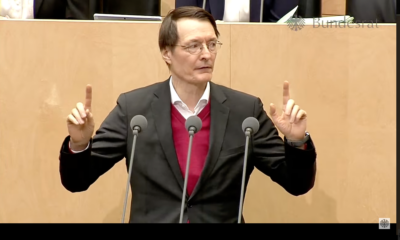Doctors have warned of a possible link between the use of medical cannabis for severe childhood epilepsy and early puberty, after treating a two-year-old boy with symptoms.
Doctors have revealed how they treated a two-year-old boy, who was taking medical cannabis for severe epilepsy, with symptoms of early puberty.
The two-year-old was diagnosed after showing early signs of puberty, including genital enlargement and body hair growth.
The boy’s mother said these changes had started happening six months earlier, a month after she had begun giving him cannabis oil, which had been bought online without a prescription.
Her son had had over 20 seizures a day since birth, which had become more frequent over time and failed to respond to conventional treatment. He also had developmental delay, poor muscle tone and control, and impaired vision.
According to his mother, cannabis oil had reduced the number of his daily seizures to five.
Research suggests that cannabis oil may help cut the risk of seizures in childhood epilepsy.
But as yet, there’s no consensus on its impact on a trio of glands, known as the hypothalamo-pituitary-gonadal (HPG) axis, which is responsible for the development and regulation of several of the body systems, including reproduction.
The start of puberty before the age of nine in boys, formally known as precocious puberty, is attributed to premature activation of the HPG axis.
Tests revealed that the boy’s testosterone level was abnormally high, as were levels of other reproductive hormones. He was treated with drugs to dampen down the effects of these hormones.
Writing in the journal, BMJ Case Reports, the doctors point out that some previously published studies have linked cannabis use to increased levels of the male hormone testosterone, raising the question of a possible dose-related effect as higher strength preparations become readily available.
They add that the majority of the research on the effectiveness of cannabis oil for reducing seizure frequency in epilepsy has been done in the laboratory rather than in humans.
“More research on the effects of cannabis use on human hormonal markers and clinical outcomes is necessary, and is expected as cannabis continues to become legalised in more countries,” they suggest.
But the authors have cautioned that this is just one case and no previous cases of early puberty associated with cannabinoid use have been reported.
“It is unclear whether the precocious puberty seen in our patient is a direct result of activation of the HPG axis by [cannabis],” they emphasised, but urged doctors to be aware of the potential hormonal consequences of cannabis use.
They concluded: “Until a more robust evidence base is established, clinicians should be cautious of hormonal consequences of cannabis-related products, particularly as children with brain abnormalities may be more susceptible to these effects.”

Hannah Deacon and son Alfie Dingley who has taken cannabis oil for three years.
Hannah Deacon, co-founder of the Medical Cannabis Clinicians Society, whose son Alfie Dingley has taken cannabis oil for epilepsy for three years, warned that placing too much weight on just one case could deter doctors from prescribing what could be a potentially life-saving treatment.
In cases of severe epilepsy it is always a matter of weighing up the “risk and benefit”, she pointed out.
“Nothing is 100 percent safe for our children either way,” Deacon told Cannabis Health.
“If you stop or reduce seizures but the side effects could be possible precocious puberty then you need to think about whether this is worth the risk. For many children with refractory epilepsy they have quite severe learning delay and are unlikely to have ‘normal’ relationships in adulthood.”
She added: “I don’t think this study has enough substance to be taken seriously yet. Alfie has been on his product for three years and we have seen no sign of this at all.”

 News6 months ago
News6 months ago
 Science5 months ago
Science5 months ago
 Industry6 months ago
Industry6 months ago
 News6 months ago
News6 months ago
 News5 months ago
News5 months ago
 Health4 months ago
Health4 months ago
 News5 months ago
News5 months ago
 Health3 months ago
Health3 months ago













